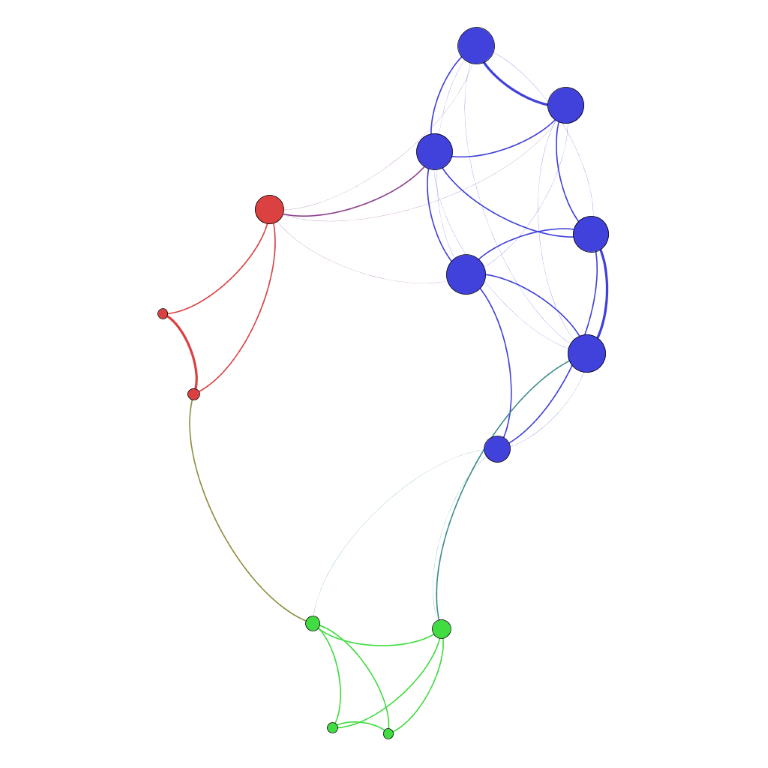The Impact of Gamification on Socio-technical Communities: A Case for Network Analysis
13 Nov 2018 · 2 min read Figure: A Small Social Network
Figure: A Small Social Network
Recently my colleague Timo and I wrote a paper that emphasizes the importance of two things: First of all, the importance of network and community analysis in gamification research. We claim that the impact of gamification can be seen not only at the level of the individual, but that it will impact the structure of sociotechnical communities. We propose that building hypotheses on the type of the impact and rigorously testing them will be a research agenda with potential for generating significant novel knowledge.
Secondly, we urge network analysis papers to move towards hypothesis testing instead of just presenting descriptive statistics. Wohlin et al.* summarize the importance of hypothesis testing for generating new knowledge as follows. “In science, physical phenomena are addressed by putting forward hypotheses. The phenomenon is observed and if the observations are in line with the hypothesis, this becomes evidence for the hypothesis. Experiments are important to test the hypothesis and in particular the predictive ability of the hypothesis. If the new experiments support the hypothesis, then we have more evidence in favor of the hypothesis.” If the study remains at the level of descriptive statistics, no evidence is created to support the presented new knowledge. (We acknowledge that this is a very positivist view and other philosophies of science or qualitative approaches are just as valid. However, in positivist-quantitative approaches hypothesis testing is essential.)
Read More
An open access version of the paper is available at CEUR-WS.
Abstract
Designing for motivating and engaging experiences is at the core of gamification. The results of gamification are often evaluated with user experience testing involving recordings, surveys, and interviews. However, in multi-user socio-technical environments the benefits of gamification are often realized in interactions between users. We propose that social network analysis should be used more to analyze the impact of gamification at community level. To demonstrate the approach, we present a study where a gamified computer-supported collaborative learning system was introduced to a course, and compare the course to a previous instance. Furthermore, we present several examples of how social network analysis can be used with hypothesis testing and discuss the benefits of the approach.
Citation
Knutas A., Hynninen T. (2018). The Impact of Gamification on Socio-technical Communities: A Case for Network Analysis. In Proceedings of the 2nd Workshop on Games-Human Interaction (GHITALY 2018). (Open access at CEUR-WS)
References
* Claes Wohlin, Per Runeson, Martin Höst, Magnus C. Ohlsson, Björn Regnell, and Anders Wesslén. 2012. Experimentation in software engineering. Springer Science & Business Media.